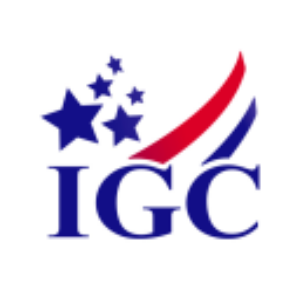IGC Acquires Exclusive Rights for a Potential Alzheimer’s Drug Development Candidate
India Globalization Capital (IGC) announced its subsidiary secured an Intellectual Property license for a potential Alzheimer's drug candidate. This follows nearly a decade of research at Jawaharlal Nehru Centre for Advanced Scientific Research, which identified the NMI molecule, TGR 63. This compound has shown promise in reducing beta amyloid plaques and cognitive decline in Alzheimer's models. IGC aims to develop TGR 63 alongside its ongoing human trials of IGC-AD1. With a projected 78 million dementia patients by 2030, the global societal cost of dementia is expected to exceed $2.8 trillion.
- Exclusive global rights acquired for TGR 63, a potential Alzheimer's drug candidate.
- TGR 63 shows promise in reducing beta amyloid plaques and cognitive decline.
- Aligns with IGC's current human trials for IGC-AD1, enhancing product pipeline.
- Relies on successful commercialization and regulatory approval for TGR 63.
- Subject to risks including economic conditions and FDA stance on cannabis products.
Insights
Analyzing...
Researchers at the
JNCASR’s research based on Alzheimer’s cell lines, identified one lead NMI molecule, TGR 63, with the potential to reduce beta amyloid (Aβ) plaques. Further, they demonstrated that the molecule reduces cognitive decline in a transgenic mouse model of Alzheimer’s. Their results were published in Advanced Therapeutics under the title “Naphthalene Monoimide Derivative Ameliorates Amyloid Burden and Cognitive Decline in a Transgenic Mouse Model of Alzheimer’s Disease” on
IGC acquired exclusive global rights to the molecule and plans to develop this NMI lead candidate further. IGC is currently in human trials with IGC-AD1 that targets neuropsychiatric symptoms associated with dementia in Alzheimer’s. It is currently being evaluated as an Alzheimer’s symptom modifying agent. TGR-63, the new molecule, strategically, gives the Company a potential disease modifying agent and positions the Company to develop a drug that can potentially treat or modify Alzheimer’s by targeting beta amyloid (Aβ) plaques.
According to the
About JNCASR:
About IGC:
IGC has two segments: Infrastructure and Life Sciences. The company is based in
Forward-looking Statements:
This press release contains forward-looking statements. These forward-looking statements are based largely on IGC’s expectations and are subject to several risks and uncertainties, certain of which are beyond IGC’s control. Actual results could differ materially from these forward-looking statements as a result of, among other factors, the Company’s failure or inability to commercialize one or more of the Company’s products or technologies, including the product or formulation described in this release, or failure to obtain regulatory approval for the product or formulation, where required; general economic conditions that are less favorable than expected, including as a result of the ongoing COVID-19 pandemic; the FDA’s general position regarding cannabis- and hemp-based products; and other factors, many of which are discussed in IGC’s
View source version on businesswire.com: https://www.businesswire.com/news/home/20220620005637/en/
301-983-0998
Source:







